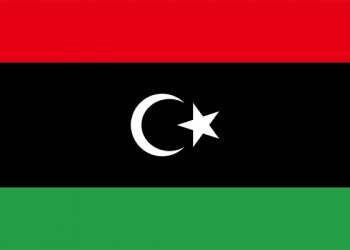MOGADISHU, SOMALIA – Many Somalis are reacting with horror – and a sense of understanding – at British runner Mo Farah’s tale of being trafficked to Britain as a child and forced to look after other children.
Olympic champion Farah was born in present-day Somaliland, a territory by the Gulf of Aden that has asserted independence from the Horn of Africa nation of Somalia. In a BBC documentary aired earlier this week Farah revealed how as a boy of 8 or 9 he was separated from his family and trafficked from neighboring Djibouti to the U.K. under a new name under which he eventually ran for glory.
Here, in the Somali capital Mogadishu, those who have heard of Farah’s account express sadness for what he went through as a child forced to work in servitude. But they also point out that he was not alone in facing exploitation.
Conflict, climate change and economic collapse are displacing record numbers of people around the world, pushing more and more migrants into the hands of criminals who profit by smuggling them into Britain, the European Union and the U.S.
Somalis, like their neighbors in Ethiopia and Eritrea, are often among the desperate – people fleeing conflict and hunger in hopes of safety and a better life. Convinced they have little to lose, the young risk their lives on flimsy boats organized by human traffickers who get them across the English Channel to Britain.
Those who can afford it pay thousands of dollars to reach countries where they hope to find jobs and security. Others fall prey to criminals who force them into sex work, drug crimes and domestic servitude.
MOGADISHU, SOMALIA – Many Somalis are reacting with horror – and a sense of understanding – at British runner Mo Farah’s tale of being trafficked to Britain as a child and forced to look after other children.
Olympic champion Farah was born in present-day Somaliland, a territory by the Gulf of Aden that has asserted independence from the Horn of Africa nation of Somalia. In a BBC documentary aired earlier this week Farah revealed how as a boy of 8 or 9 he was separated from his family and trafficked from neighboring Djibouti to the U.K. under a new name under which he eventually ran for glory.
Here, in the Somali capital Mogadishu, those who have heard of Farah’s account express sadness for what he went through as a child forced to work in servitude. But they also point out that he was not alone in facing exploitation.
Conflict, climate change and economic collapse are displacing record numbers of people around the world, pushing more and more migrants into the hands of criminals who profit by smuggling them into Britain, the European Union and the U.S.
Somalis, like their neighbors in Ethiopia and Eritrea, are often among the desperate – people fleeing conflict and hunger in hopes of safety and a better life. Convinced they have little to lose, the young risk their lives on flimsy boats organized by human traffickers who get them across the English Channel to Britain.
Those who can afford it pay thousands of dollars to reach countries where they hope to find jobs and security. Others fall prey to criminals who force them into sex work, drug crimes and domestic servitude.
Farah said his fortunes in Britain changed when he was finally allowed to attend school. A teacher who was interviewed for the documentary recalled a 12-year-old boy who appeared ‘unkempt and uncared for,’ was ’emotionally and culturally alienated’ and spoke little English.
Farah eventually told his story to a physical education instructor. The teacher contacted local officials, who arranged for a Somali family to take him in as a foster child. He soon blossomed on the track.
Anti-slavery advocates say Farah is the most prominent person to come forward as a victim of modern-day slavery, a crime that is often hidden because it occurs behind closed doors and inflicts such trauma on its victims.
Now that a man of such celebrity has spoken of his experience, there can no longer be any doubt about the horror of child servitude even among ordinary Somalis who otherwise would find his account ‘unusual,’ said Bashir Abdi, an academic based in Mogadishu.
‘Children consistently face abuses, but the story this renowned athlete revealed has captured the attention of many people, including Somalis,’ he said. ‘We often hear of child exploitations, and I believe that significant (numbers of) Somali children go through domestic violence and abuses, but little is exposed to the public.’
Amina Ali, a stay-home mother of four in Mogadishu, told The Associated Press that it was tough for her to hear the story of a 9-year-old boy ‘so weak and helpless forced to clean house and change the diapers of other kids.’
‘As a mother, I felt sadness for him once I have listened,’ she said. ‘Praise be to Allah that he is no longer under those circumstances. However, he is now at some point where he can reveal his story and I wish those (who) committed that abuse to be brought before justice one day.’







